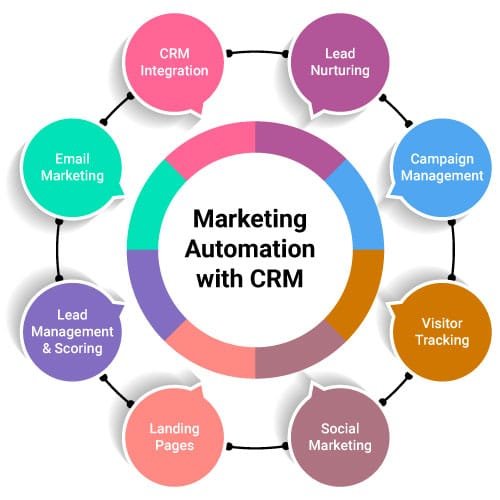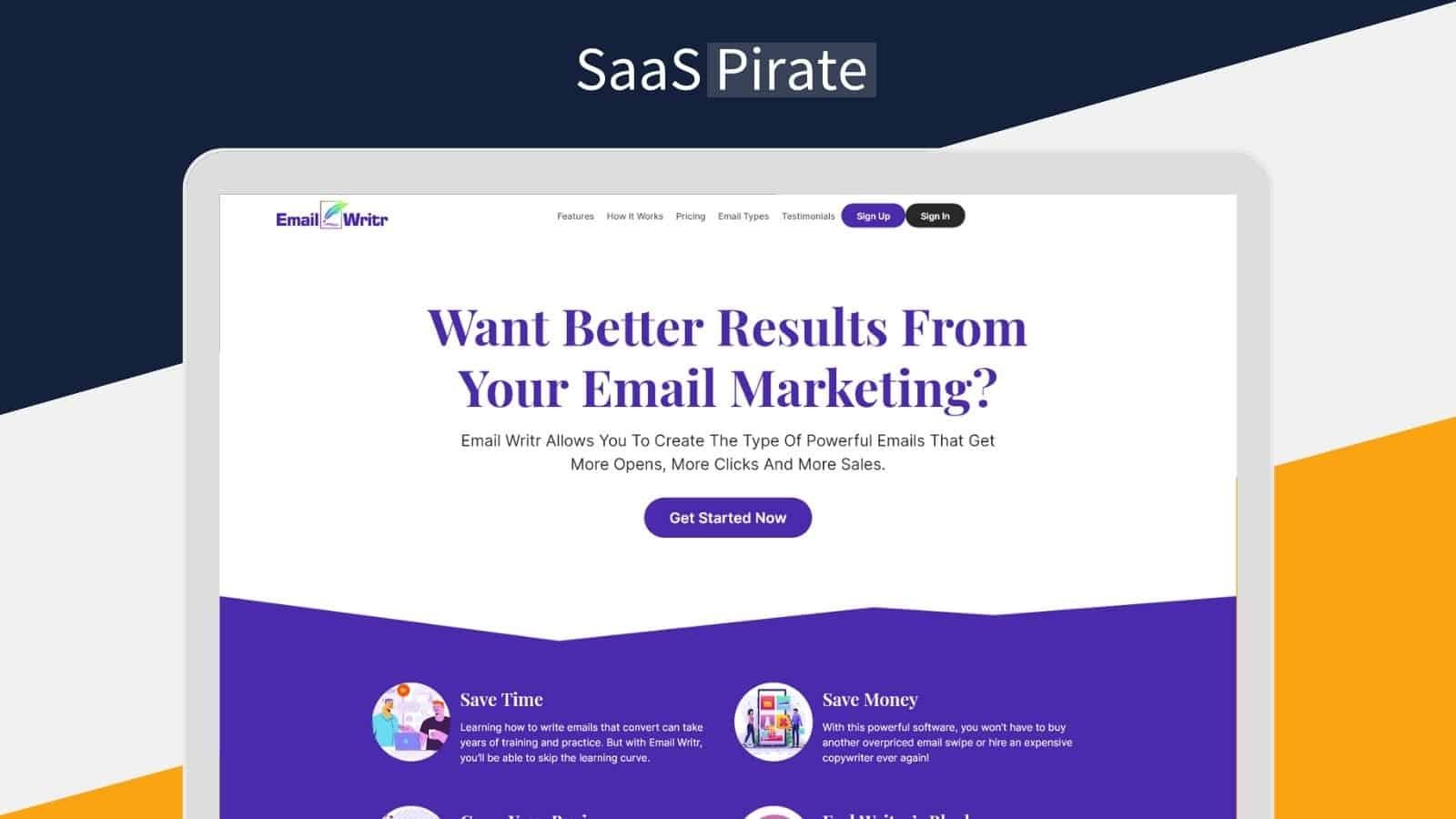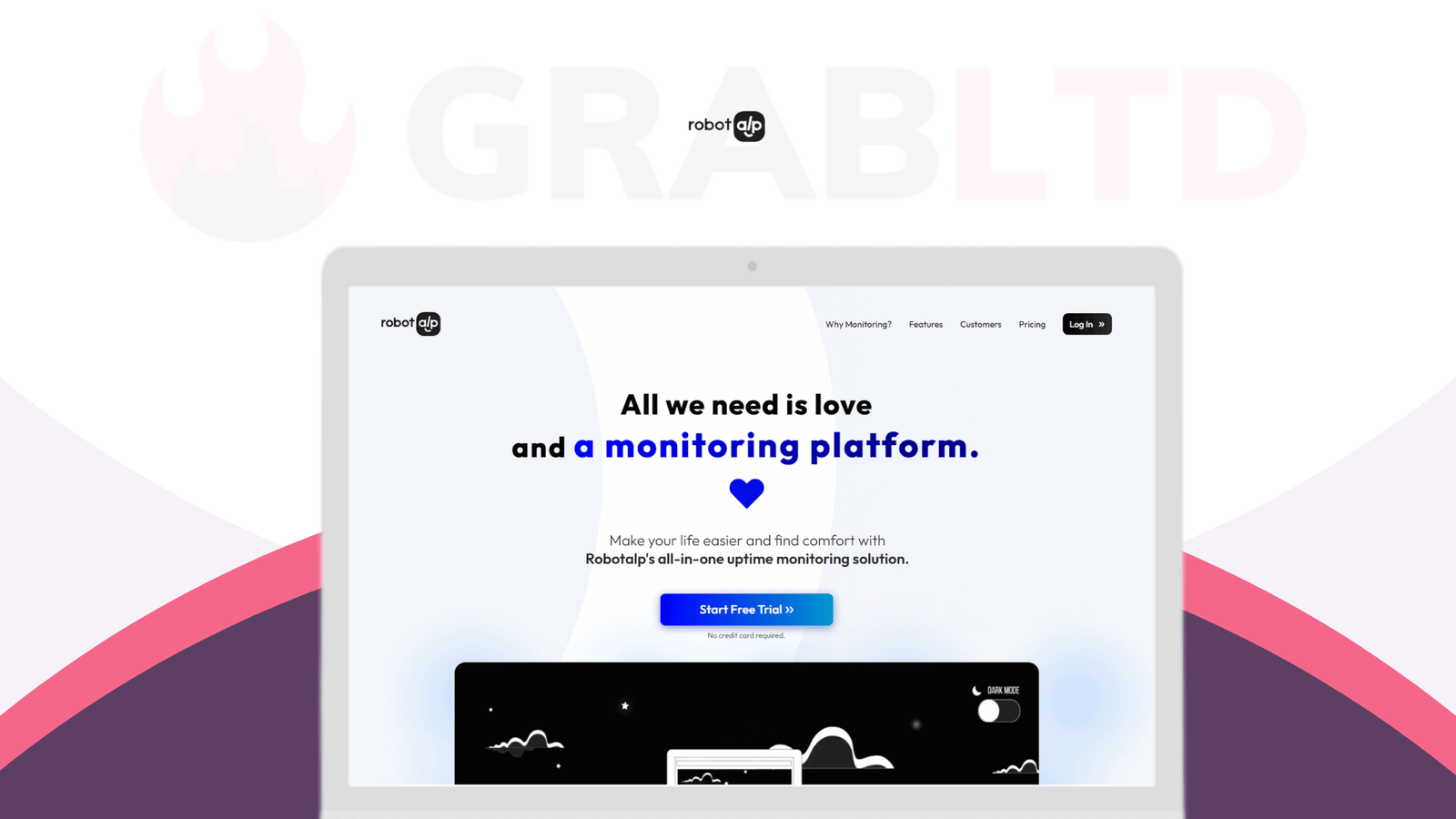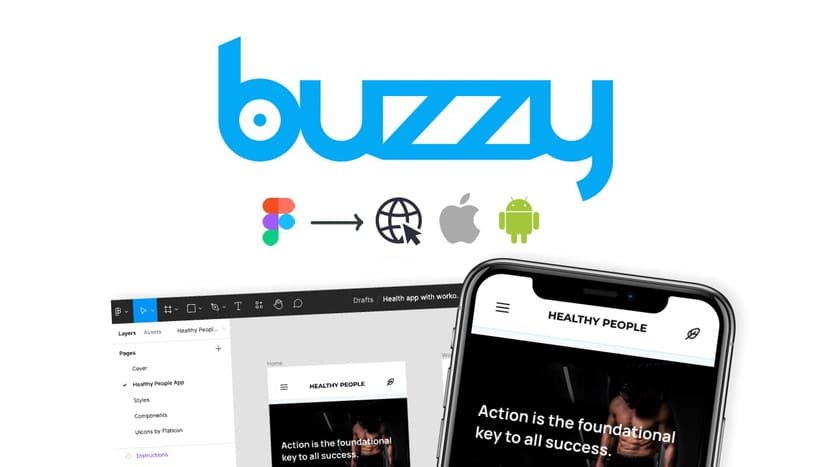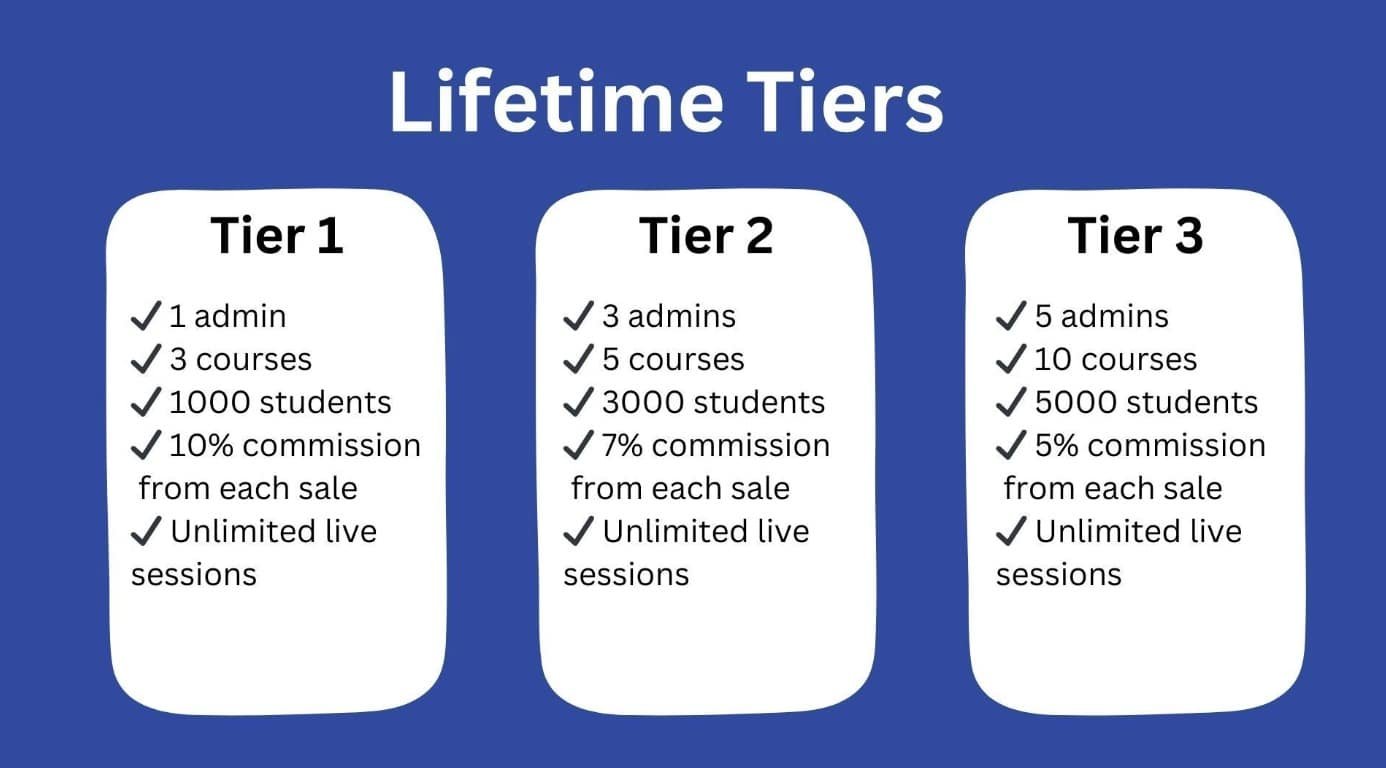Customer Relationship Management (CRM) and Marketing Automation Software are often confused. They serve different but complementary purposes.
Understanding their differences can help businesses choose the right tool. CRM software focuses on managing customer interactions and data. It helps track sales, customer service, and support. Marketing Automation Software, on the other hand, automates marketing tasks. This includes email campaigns, social media posts, and other marketing efforts.
Knowing the difference between these tools is crucial for businesses. While CRM aims to improve customer relationships, Marketing Automation Software streamlines marketing tasks. Both are essential, but their roles differ. This blog will explore the key differences. Understanding these can help you make informed decisions for your business needs. Let’s dive in and clarify these important tools.
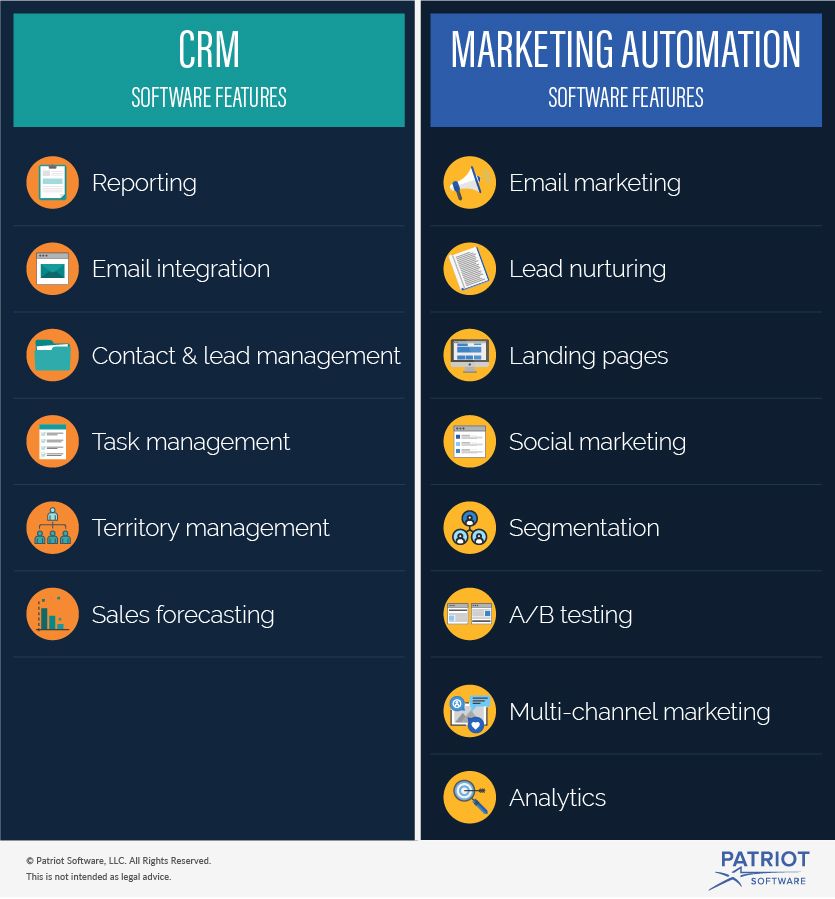
Credit: smallbusiness.patriotsoftware.com
Introduction To Crm And Marketing Automation
Understanding the difference between CRM and marketing automation software is crucial for any business. Both tools help manage customer relationships and improve marketing strategies. However, they serve different purposes and offer unique features. Let’s dive into what each tool means.
Definition Of Crm
CRM stands for Customer Relationship Management. It focuses on managing a company’s interactions with current and potential customers. CRM software helps in storing customer data, tracking sales, and managing customer service. The goal is to improve business relationships.
CRM systems collect data from multiple channels. These channels include the company’s website, phone calls, emails, live chat, and social media. By centralizing this data, CRM software offers a complete view of customer interactions. This helps in making informed decisions. It also improves customer satisfaction and retention.
Definition Of Marketing Automation
Marketing automation software helps automate marketing tasks. These tasks include email campaigns, social media posts, and targeted ads. The goal is to reach the right audience at the right time. Marketing automation streamlines repetitive tasks. This saves time and increases efficiency.
It also helps in nurturing leads. By tracking user behavior and preferences, the software can send personalized messages. This improves engagement and conversion rates. Marketing automation tools often include features like analytics and reporting. These features help in measuring the effectiveness of marketing campaigns.
Core Functions
Understanding the core functions of CRM and Marketing Automation Software is essential for businesses. These tools serve different purposes, though they complement each other well. Knowing their core functions helps in choosing the right tool for your needs.
Crm Functions
Customer Relationship Management (CRM) software focuses on managing customer interactions. It stores contact details, tracks communication history, and manages leads. CRM helps in understanding customer behavior and preferences. It also supports sales teams by organizing customer data.
Another core function is customer service management. CRM systems help in handling customer inquiries and issues. They provide tools to track and resolve problems efficiently. CRM also offers reporting and analytics to measure performance.
CRM software aids in segmenting customers based on various criteria. This segmentation helps in targeted communication. It also improves customer satisfaction by delivering personalized experiences.
Marketing Automation Functions
Marketing Automation Software focuses on automating marketing tasks. It helps in creating and managing email campaigns. This software also tracks user interactions on websites and social media.
Lead nurturing is a key function of marketing automation. It sends automated messages based on user behavior. These messages aim to convert leads into customers. Marketing automation also provides tools for scoring leads based on their actions.
Another core function is analytics and reporting. Marketing automation software tracks the performance of campaigns. It offers insights into what works and what needs improvement. This helps in optimizing marketing strategies.
Marketing automation also supports multi-channel campaigns. It integrates various platforms like email, social media, and websites. This ensures a consistent message across all channels.
Target Users
Understanding the target users of CRM and marketing automation software is crucial. It helps businesses decide which tool fits their needs. Let’s explore who typically uses each type of software.
Who Uses Crm?
CRM software is used mainly by sales teams. They need it to manage customer relationships. It helps track leads and follow-ups. Customer service teams also benefit from CRM. They use it to resolve issues and improve customer satisfaction. Business managers use CRM to get insights. They analyze sales data and trends.
Who Uses Marketing Automation?
Marketing teams are the primary users of marketing automation software. They use it to run campaigns and nurture leads. Content creators also rely on this software. It helps them schedule posts and emails. Analysts use marketing automation for tracking campaign performance. They measure success and optimize strategies. Small business owners may use it too. It helps them handle marketing tasks efficiently.
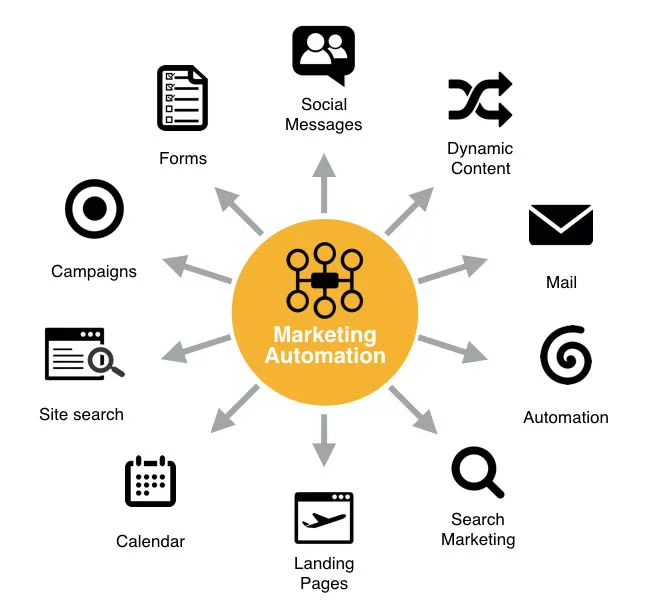
Credit: www.woopra.com
Key Features Comparison
Understanding the differences between CRM and marketing automation software helps businesses choose the right tools. Let’s break down the key features of each system to highlight their unique benefits.
Crm Features
CRM software focuses on managing customer relationships. It includes tools for tracking customer interactions and sales opportunities. Businesses can use CRM to store customer information, manage leads, and monitor sales pipelines. CRMs also offer reporting and analytics to measure sales performance. Integration with email and calendars helps in scheduling and communication.
Marketing Automation Features
Marketing automation software aims to streamline marketing tasks. It automates email campaigns, social media posts, and ad management. Businesses can use it to segment audiences and personalize messages. This software also tracks user behavior on websites and sends follow-up emails. Analytics and reporting features measure campaign effectiveness. Integration with CRM systems ensures smooth data flow between marketing and sales.
Benefits
When navigating the landscape of business tools, understanding the benefits of CRM and marketing automation software can help you make informed decisions. Both have distinct advantages that can streamline your operations and boost your productivity. Let’s delve into the specific benefits of each.
Benefits Of Crm
Customer Relationship Management (CRM) software is designed to enhance your interaction with customers. It centralizes customer data, making it easier for your team to access and manage information.
One of the key benefits is improved customer service. With a CRM, you can track customer interactions and preferences, allowing for personalized service. This ensures your customers feel valued and understood.
CRMs also boost sales efficiency. They help you keep track of leads and follow-ups, ensuring no opportunity is missed. For example, automated reminders can prompt your team to check in with a potential client, increasing the chances of closing a deal.
Moreover, CRMs can provide valuable insights through reporting and analytics. By analyzing customer data, you can identify trends and make strategic decisions. This data-driven approach can enhance your business growth and customer satisfaction.
Benefits Of Marketing Automation
Marketing automation software, on the other hand, is designed to streamline your marketing tasks. It automates repetitive tasks, freeing up your time for more strategic activities.
One significant benefit is the ability to nurture leads effectively. Automated email campaigns can keep your audience engaged without constant manual effort. For instance, you can set up a series of welcome emails for new subscribers, ensuring they receive timely and relevant information.
Marketing automation also enhances targeting and personalization. You can segment your audience based on behavior and preferences, delivering tailored content. This increases the likelihood of conversion as your messaging resonates more with each segment.
Additionally, marketing automation provides comprehensive analytics. You can track the performance of your campaigns in real-time, identifying what works and what doesn’t. This allows for continuous improvement and better ROI on your marketing efforts.
Have you considered how these tools could transform your business? By leveraging the unique benefits of both CRM and marketing automation software, you can create a more efficient and effective operation.
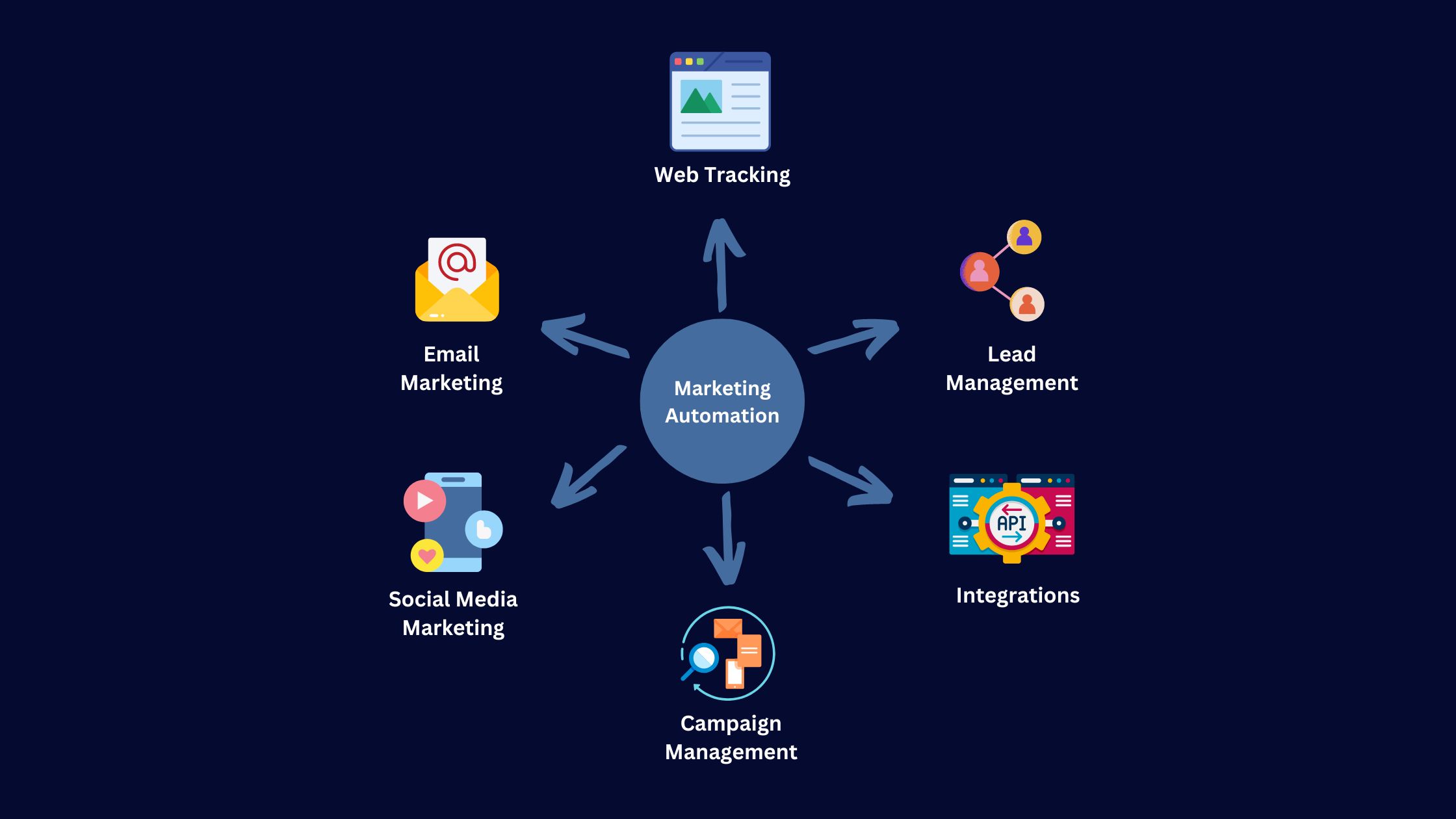
Credit: www.rolustech.com
Challenges
Navigating the differences between CRM and marketing automation software can be challenging. CRM focuses on managing customer relationships, while marketing automation streamlines marketing tasks. Understanding the roles of each tool is essential for effective business management.
Customer Relationship Management (CRM) and Marketing Automation Software are powerful tools that can transform your business. However, they come with their own set of challenges. Understanding these challenges can help you make better decisions and avoid potential pitfalls. Let’s dive into the specific challenges of each.Challenges Of Crm
One major challenge with CRM systems is data management. It’s easy to end up with duplicated or outdated information. This can make your data unreliable and affect decision-making. User adoption is another hurdle. If your team isn’t using the system correctly, you won’t get the full benefits. Training is essential but can be time-consuming and costly. Integration with other systems can also be problematic. Your CRM needs to work seamlessly with your existing tools. Otherwise, you may face inefficiencies and data silos.Challenges Of Marketing Automation
Marketing automation software often comes with a steep learning curve. It can take time to understand all its features and how to use them effectively. Content creation is another big challenge. Automation requires a lot of content to be effective. Creating high-quality content consistently can be difficult and resource-intensive. Lastly, measuring ROI can be tricky. It’s not always easy to track the direct impact of your marketing automation efforts. Without clear metrics, you might struggle to justify the investment. Have you faced any of these challenges with CRM or marketing automation? How did you overcome them? Sharing your experiences can help others navigate these common issues.Integration Possibilities
When considering the integration possibilities of CRM and marketing automation software, it’s essential to understand how each system can enhance your business operations. Both CRM and marketing automation tools can work together to streamline processes, improve customer relationships, and drive more sales. Let’s dive into the specifics of how these integrations work.
Crm Integration
CRM integration allows you to connect your customer relationship management system with other tools and platforms your business uses. This can include email marketing software, social media platforms, and even your website.
By integrating your CRM, you can have a unified view of customer data. This means your sales team can access detailed information about customer interactions, purchase history, and preferences. For instance, if you integrate your CRM with your email marketing software, your sales team can see which emails a customer has opened and clicked.
Integration also reduces manual data entry. Information is automatically updated across platforms, saving time and reducing errors. This leads to more efficient workflows and more accurate customer data.
Have you ever wondered how much time your team spends on manual data entry? Imagine the efficiency boost if that time was spent on direct customer interaction instead.
Marketing Automation Integration
Marketing automation integration connects your automation tools with other systems to create seamless marketing campaigns. This can involve linking with your CRM, social media management tools, and even analytics platforms.
With marketing automation integration, you can track customer behavior across multiple channels. This data helps you create more personalized and targeted marketing campaigns. For example, if you integrate your marketing automation tool with your CRM, you can segment your audience based on their purchase history and send them tailored messages.
Automation also helps in lead nurturing. By integrating your marketing automation with your CRM, you can ensure that leads are followed up with timely and relevant content. Have you noticed an increase in lead conversion after implementing a well-timed drip campaign?
The key to successful integration lies in choosing tools that work well together. Look for software with robust API capabilities and strong support for third-party integrations. This ensures that your systems communicate effectively and your data flows seamlessly.
Ultimately, the integration possibilities between CRM and marketing automation software can transform how you manage customer relationships and execute marketing campaigns. How will you harness this potential to elevate your business strategies?
Choosing The Right Tool
Choosing the right tool helps your business grow. CRM software manages customer relationships. Marketing automation software streamlines marketing tasks. Each serves unique purposes.
Choosing the right tool between CRM and marketing automation software can feel like navigating a maze. But, understanding your business needs and budget can simplify this process. Let’s break down the considerations you should keep in mind. ###Business Needs Assessment
The first step is to understand your business needs. Are you looking to improve customer relationships? Then CRM software might be your best bet. It offers detailed customer interaction tracking and helps manage sales pipelines efficiently. On the other hand, if you aim to streamline and automate marketing tasks, marketing automation software is ideal. It can automate email campaigns, social media posts, and lead generation. Assess your goals. Do you need better customer insights or more efficient marketing processes? Your specific needs will guide your choice. ###Cost Considerations
Budget is a critical factor. CRM systems can range from affordable to high-end, depending on features. Small businesses might prefer basic CRM solutions, while larger enterprises might need advanced options with robust analytics. Marketing automation software also varies in price. Some tools offer affordable packages for startups, while others cater to large-scale businesses with comprehensive features. Consider the long-term benefits. Sometimes, investing a bit more initially can save costs and drive growth in the long run. Choosing the right tool is not just about what you need today, but also about where you see your business in the future. Evaluate both CRM and marketing automation software with your business growth in mind.Case Studies
Case studies provide real-world examples of how businesses use CRM and marketing automation software. These examples help understand the differences and benefits of each tool. Let’s explore some successful implementations of CRM and marketing automation software.
Successful Crm Implementations
A retail company faced issues with customer service. They implemented a CRM system to manage customer interactions better. The CRM allowed the company to track customer complaints and feedback in one place. This streamlined the process and improved customer satisfaction. The system also helped in identifying loyal customers. As a result, the company saw a 20% increase in repeat sales within six months.
Another example is a small consulting firm. They struggled with managing client relationships and project details. By using a CRM, they organized client information and project timelines effectively. The CRM provided reminders for follow-ups and deadlines. This led to better client communication and higher project success rates. In a year, the firm reported a 30% increase in client retention.
Successful Marketing Automation Implementations
An e-commerce business wanted to enhance its email marketing efforts. They adopted a marketing automation tool to send personalized emails to customers. The software segmented customers based on their purchase history. It then sent tailored emails promoting relevant products. This approach increased email open rates by 40%. The company also saw a 25% rise in sales from email campaigns.
A software company aimed to generate more leads. They used marketing automation to create and manage landing pages and forms. The tool helped track visitor behavior and capture leads efficiently. Automated follow-up emails nurtured the leads through the sales funnel. The company experienced a 50% growth in qualified leads and a 15% increase in conversions within a year.
Future Trends
The future of CRM and marketing automation software is an exciting space. Both are evolving rapidly with technology advancements. Staying ahead of these trends can give your business a competitive edge.
Future Of Crm
CRM systems will become more intelligent. Artificial intelligence (AI) and machine learning will enhance data analysis. This will help you understand your customers better.
Expect more automation in routine tasks. This will free up time for your team to focus on strategic activities. Voice recognition and chatbots will also become standard, making interactions smoother.
Integration will be key. Your CRM will need to work seamlessly with other tools. This can include your email marketing software, social media platforms, and customer service systems.
Future Of Marketing Automation
Personalization will be at the forefront. Your marketing messages will be tailored to individual preferences. This will result in higher engagement rates.
Content creation will also see automation. Tools that suggest content based on audience behavior will become more common. This ensures that your content remains relevant and timely.
Predictive analytics will play a significant role. By analyzing past behavior, your software will predict future actions. This can help you plan more effective marketing campaigns.
How do you see these trends impacting your business? Are you ready to embrace these changes? Adapting to new technology can be challenging, but it can also offer significant rewards.
Frequently Asked Questions
What Is The Difference Between Crm And Marketing Automation?
CRM manages customer relationships and data. Marketing automation streamlines and automates marketing tasks. Both enhance business efficiency.
What Is The Difference Between Crm And Marketing Automation Sales Engagement?
CRM manages customer relationships, tracking interactions and data. Marketing automation handles campaigns, automating repetitive tasks. Sales engagement tools focus on direct sales activities.
What Is The Difference Between Crm And Marketing Tools?
CRM manages customer relationships and data. Marketing tools focus on promoting products and analyzing campaign effectiveness. Both enhance business growth.
Is Hubspot A Crm Or Marketing Automation Platform?
HubSpot is both a CRM and a marketing automation platform. It integrates customer relationship management with marketing tools for seamless operations.
Conclusion
Choosing between CRM and marketing automation software depends on your business needs. CRM helps manage customer relationships and sales processes. Marketing automation streamlines and automates marketing tasks. Both tools can improve efficiency and productivity. Understand your goals and select the right software for your team.
The right choice can enhance your business operations and drive growth. Investing time to evaluate options will pay off. Make an informed decision and see positive results.

